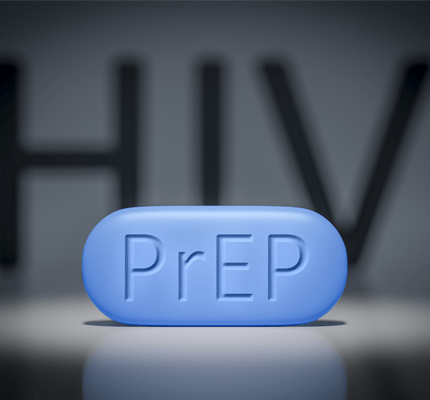
Uncertainty and PrEP Use in Taiwan
Pre-exposure prophylaxis (PrEP) is a drug designed to prevent users from developing human immunodeficiency virus (HIV). In a recently published article in NCA’s Journal of Applied Communication Research, Poyao Huang, Huei-Jiuan Wu, Carol Strong, Feng-Ming Jan, Ling-Wen Mao, Nai-Ying Ko, Chia-Wen Li, Chien-Yu Cheng, and Stephane Wen-Wei Ku examined how men who have sex with men communicate about PrEP and safe sex on social apps in Taiwan. At the time of the article’s release, PrEP was not covered by the national health insurance in Taiwan and cost about $400 per month, an amount that rivaled monthly rent for an apartment in Taipei.
Considering the use of PrEP raises a variety of uncertainties, including uncertainty about the drug’s effectiveness, side effects, and cost and availability, as well as the potential stigma associated with the drug’s use. Men who have sex with men might be uncertain about revealing their own statuses on dating apps, such as “HIV negative, on PrEP,” because they may be uncertain about how others will interpret that status. Stigma can also play a role in uncertainty because of the social stigma associated with HIV and acquired immunodeficiency syndrome (AIDS).
The authors interviewed 31 men who have sex with men who had participated in a PrEP demonstration project in Taiwan about their perceptions and experiences with PrEP. Fewer than half (41.9 percent) of the study participants had revealed that they were taking PrEP on social apps. The authors identified three themes that emerged from the interviews: condition uncertainty, information uncertainty, and stigma uncertainty.
Condition uncertainty
Condition uncertainty refers to how men who have sex with men reported and managed their use of PrEP. PrEP can be prescribed as a daily medication or taken prior to and after having sex. One participant explained why they did not list their HIV status as “HIV negative, On PrEP”: “I didn’t change my HIV status to ‘On PrEP’ because I don’t take Truvada every day. I only take it when I have sex. My understanding of being ‘On PrEP’ means that you need to take it every day. If I’m not sexually active, then I can’t honestly say that I’m taking PrEP.” This participant expressed uncertainty about whether “HIV negative, on PrEP” would misrepresent their medical condition.
In contrast, one participant who took PrEP daily said, “I’m not a fan of taking PrEP on-demand. In my opinion, the method of on-demand is risky because you have to schedule when you are going to have sex, which is difficult for me…But I am actually thinking about switching to the on-demand method, mainly because of the cost.” This participant expressed two kinds of uncertainty. They were concerned about whether on-demand PrEP would protect against developing HIV, and they were also concerned about balancing using PrEP and saving money.
Information uncertainty
Information uncertainty refers to the difficulty of explaining HIV and PrEP status to others who lack health literacy because of the difficulty of translating information between the medical and social world. One participant stated, “I didn’t specify that I’m on PrEP, because its Mandarin translation appears on social apps as ‘陰性, 正在接受PrEP治療’ (‘HIV negative, under PrEP treatment’). It sounds like you’re sick and taking medicine. People who don’t understand PrEP might think that I have HIV. I don’t want to confuse others about my status.”
Other participants expressed concerns the health literacy of other men who have sex with men: “Self-disclosure of HIV status is important to me. I put my test results and ‘On PrEP’ status online. It’s like a mark or certificate, suggesting that I’ve done my part. But I don’t know about others’ statuses regarding PrEP because I really don’t know if they’re true. Is that person really on PrEP even if his profile says so? I can’t ask him to prove it by swallowing pills in front of me.” This participant’s knowledge of PrEP led them to be concerned about whether others also had accurate information about PrEP and thus led to uncertainty in interpreting whether others’ disclosures were accurate.
Stigma uncertainty
Stigma uncertainty relates to the social stigma of HIV. One participant said, “I specify that I’m on PrEP in my profile, largely with the intention of showing the gay community that there’s a new method of preventing HIV infection. But I’m afraid that others might ask me to have condomless sex if they find out that I’m on PrEP. I still play safe [by using condoms], and I’m not good at negotiating condom use with others. Saying that I’m on PrEP might cause me more harm than good.” This participant was concerned about the stigma associated with PrEP use in Taiwan, where the drug was described as a “hookup pill.” They were also concerned about the stigma associated with HIV.
Applied Implications
The authors argue that their results show that men who have sex with men navigate a variety of uncertainties related to PrEP use. First, public health information about PrEP treatment could help users and potential users navigate condition uncertainty. Second, such public health information should use plain language to mitigate information uncertainty. Finally, health practitioners could work with men who have sex with men on strategies to discuss sexual activities online, and health campaigns could better address HIV stigma.










